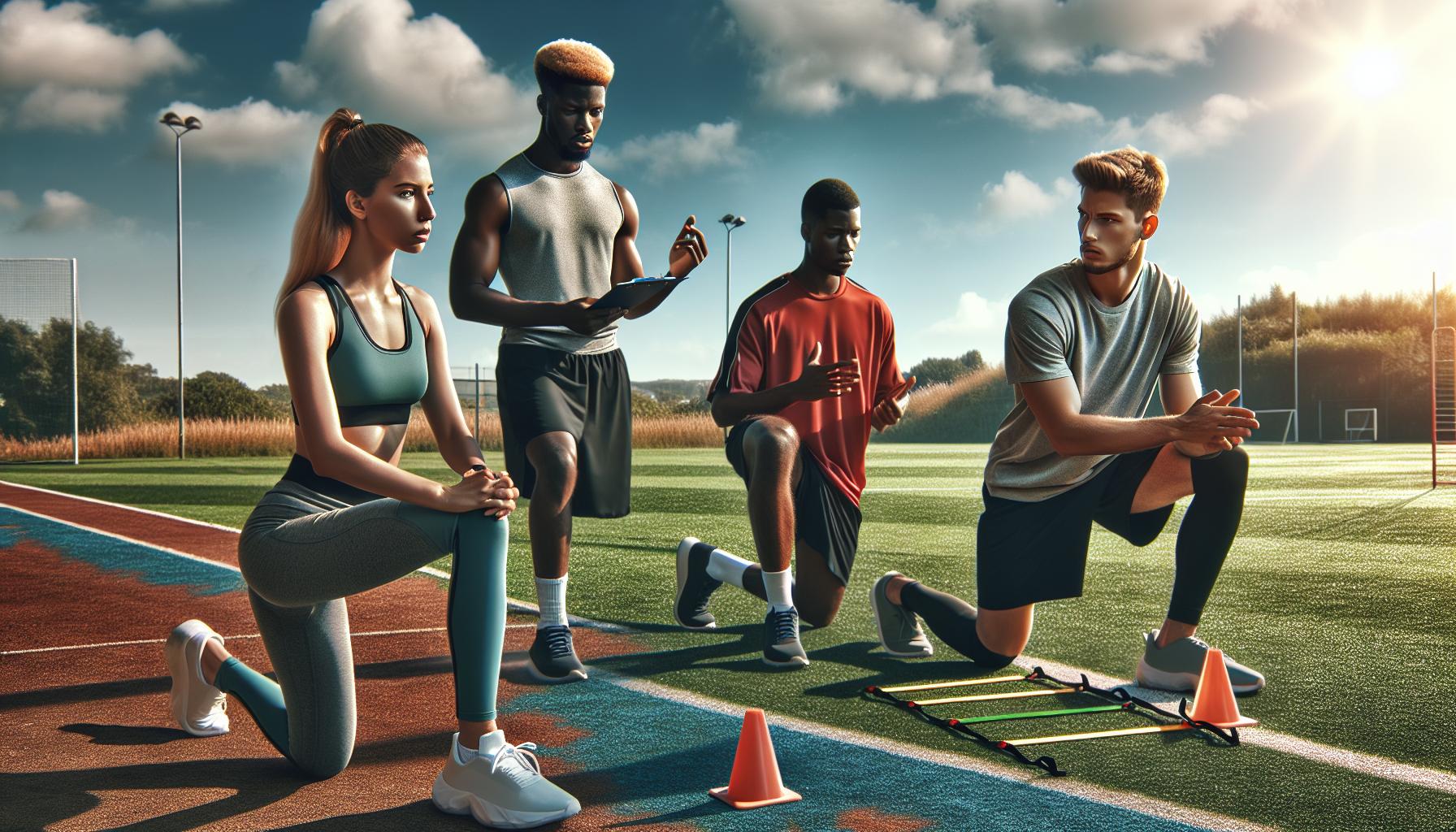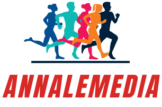Sport science internships are the golden ticket for aspiring professionals looking to dive into the dynamic world of athletics. Imagine this: you’re not just crunching numbers or staring at spreadsheets; you’re analyzing performance data and helping athletes reach their peak potential. It’s like being a superhero, but instead of a cape, you get a lab coat and a whistle!
These internships don’t just offer experience; they open doors to a network of industry experts and future job opportunities. Whether it’s working with elite athletes or contributing to groundbreaking research, the thrill of sport science internships keeps you on your toes—literally. So, if you’re ready to turn your passion for sports into a career, buckle up! The journey to becoming a sport science guru starts now.
Sport Science Internships
Sport science internships offer practical experience for those aiming to build a career in athletics. These opportunities enable individuals to engage directly with performance analysis and athlete support. By working alongside professionals, interns learn valuable techniques that enhance their understanding of sports science.
Internships often span various environments, including universities, sports teams, and fitness organizations. Each setting provides unique exposure to different aspects of the field. Interns contribute to tasks such as collecting data, assessing athlete performance, and formulating training regimens.
Networking plays a crucial role during these internships. Building connections with industry professionals often leads to mentorship opportunities. Former interns frequently report that these relationships assist in securing future job prospects.
The skills gained through sport science internships significantly benefit career development. Interns refine analytical skills essential for analyzing data and applying findings to improve athletic performance. Meanwhile, communication skills enhance interactions with coaches and athletes.
Many internships focus on specific areas within sport science. For instance, some emphasize biomechanics, while others explore exercise physiology. Each focus area contributes to a well-rounded knowledge base vital for establishing expertise in the field.
Internships typically last from a few weeks to several months, depending on the program. Over time, participants gain deeper insights into the demands and rewards of a career in sport science. Ultimately, these hands-on experiences prepare individuals for the challenges they will encounter as professionals.
Benefits Of Pursuing Sport Science Internships

Pursuing sport science internships offers substantial advantages for aspiring professionals in the athletic field. These experiences not only enhance employability but also provide critical insights into the industry.
Real-World Experience
Gaining real-world experience stands as one of the primary benefits of sport science internships. Interns actively participate in data collection and analysis, contributing to meaningful projects. They assess athlete performance and assist in developing training regimens, gaining practical skills that can’t be learned in a classroom. Exposure to daily operations within sports organizations allows for a deeper understanding of the field. Valuable mentoring relationships often form, enriching the learning process. Through these internships, individuals confront real challenges, preparing them effectively for future roles in sport science.
Networking Opportunities
Networking opportunities play a vital role in the value of sport science internships. Connections made during these internships frequently lead to lasting professional relationships. Interns interact with industry professionals, including coaches, sports scientists, and athletic trainers. These interactions often provide insights into job openings and career paths. Following the internship, maintaining these connections can prove beneficial, as many former interns find mentors through these relationships. Engaging in industry events and workshops further expands their professional network, providing access to additional career opportunities in the sport science arena.
Types Of Sport Science Internships

Sport science internships vary significantly based on their focus areas. Each type offers unique experiences and skills that contribute to professional development in the athletic field.
Research Internships
Research internships focus on collecting and analyzing data to support academic and practical applications in sport science. Interns often assist with experiments that evaluate athlete performance and strategies. Responsibilities typically include compiling literature reviews, conducting surveys, and presenting findings. Through these tasks, interns learn rigorous research methodologies while collaborating with experienced researchers. Additionally, many research internships occur within university settings, allowing interns to build connections with faculty and fellow students. Networking in this environment often leads to future academic opportunities and professional insights.
Coaching Internships
Coaching internships emphasize hands-on experience in training and developing athletes. Interns work closely with coaches to design workout plans and monitor performance enhancement strategies. Daily tasks might involve running practice sessions, analyzing techniques, and providing feedback to athletes. Observing live competitions contributes to practical understanding of game strategies and athlete management. Building relationships with coaches in this setting is crucial, as it creates potential mentors. Many coaching internships also provide access to coaching clinics and certifications, which enhance credentials in the field.
Clinical Internships
Clinical internships provide valuable experience in applying sport science concepts to rehabilitation and athlete health. Interns typically assist in developing injury prevention programs and conducting fitness assessments. They also collaborate with health professionals, such as physical therapists, to create tailored recovery plans for athletes. Daily responsibilities may include tracking athlete progress and gathering feedback during clinical sessions. Observing patient interactions develops essential communication skills, which are vital in helping athletes recover effectively. Networking with healthcare providers opens doors to future job opportunities in sports medicine and rehabilitation fields.
How To Secure Sport Science Internships

Securing a sport science internship requires a strategic approach. Candidates must focus on their skills and experiences to stand out in a competitive field.
Building A Strong Resume
Crafting a strong resume plays a crucial role in attracting potential internship providers. Highlighting relevant coursework and practical experience can showcase qualifications effectively. Including specific skills, such as data analysis or experience with performance metrics, strengthens the application. Using action verbs brings energy to descriptions, demonstrating proactive engagement in previous roles. Tailoring resumes to each application allows candidates to align their goals with each organization’s mission. Incorporating volunteer work or academic projects related to sport science may further enhance one’s profile.
Interview Tips
Preparing for interviews demands thorough research about the organization and its internship program. Demonstrating knowledge about the team’s goals and recent projects signifies genuine interest. Candidates should practice answering common questions, focusing on experiences that exhibit problem-solving abilities in real-world situations. Asking insightful questions shows engagement and enthusiasm for learning. Dressing professionally reflects the seriousness of the opportunity. Building confidence through mock interviews helps smooth presentation during the actual interview, optimizing the chances of securing the internship.
Future Careers
Sport science internships represent a pivotal step for those looking to forge a successful career in the athletic field. They not only provide essential hands-on experience but also open doors to invaluable networking opportunities. Interns gain practical skills that set them apart in a competitive job market, while also forming connections that can lead to mentorship and future employment.
By immersing themselves in various aspects of sport science, individuals can cultivate a well-rounded understanding of the industry. Engaging in internships ultimately equips them with the tools and insights needed to thrive in their chosen path, making these experiences an indispensable part of their professional journey.

